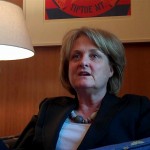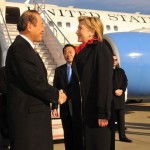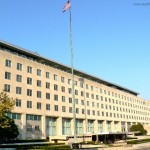The White House’s secret diplomatic weapon
 William J. Burns has been the secret weapon of U.S. secretaries of state for more than two decades, serving consecutively under three Republicans and three Democrats. So it came as no surprise that John Kerry wanted to be the seventh chief diplomat to lean daily on Burns, currently the country’s highest-ranking career diplomat, by keeping him on as deputy secretary of state, a position to which Burns was appointed by Hillary Clinton.
William J. Burns has been the secret weapon of U.S. secretaries of state for more than two decades, serving consecutively under three Republicans and three Democrats. So it came as no surprise that John Kerry wanted to be the seventh chief diplomat to lean daily on Burns, currently the country’s highest-ranking career diplomat, by keeping him on as deputy secretary of state, a position to which Burns was appointed by Hillary Clinton.
“Bill is the gold standard for quiet, head-down, get-it-done diplomacy,” Kerry said of Burns. “He is smart and savvy, and he understands not just where policy should move, but how to navigate the distance between Washington and capitals around the world. I worked with Bill really closely from the Senate Foreign Relations Committee, and I’m even more privileged to work with him now every single day. He has an innate knack for issues and relationships that’s unsurpassed…”






